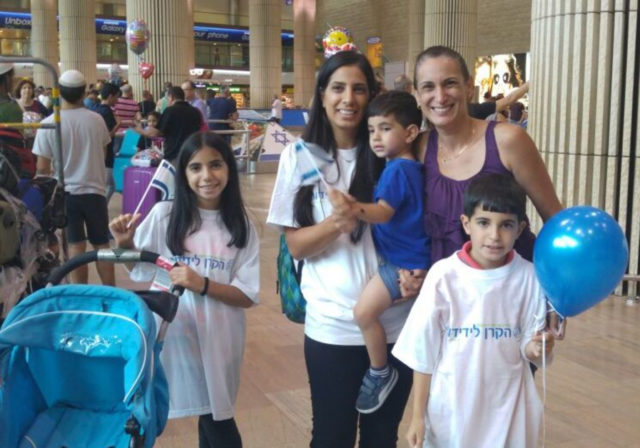
Venezuelan President Nicolas Maduro plans to hold a vote on July 30, to create a legislative super-body, an action that would rewrite the constitution and eliminate state institutions.The opposition held a symbolic referendum to give voters a chance to reject Maduro’s plan to rewrite the constitution.
Early this week as part of a rush of emigration, 26 Venezuelans made aliyah to Israel. Facing political and economic crises, many Jewish citizens have moved to other Latin American countries, but some decided to use their eligibility for citizenship in Israel instead.
The International Fellowship of Christians and Jews organized two flights to Israel for seven families. The Fellowship said that the majority of the Jewish community in Venezuela used to be wealthy, but the wealthy Jews, having the resources, left the country. The Jews remaining are often in economic distress. Between 5,000 and 9,000 Jews still live in Venezuela, including about 1,400 elderly and 500 children. Community welfare agencies sustain 700 Jewish families.
In addition to flying the immigrants to Israel, the Fellowship provides each family $400 per child and $800 per adult and places children in schools. The organization brought more than 200 Jewish immigrants to Israel over the last two years, and by the end of 2017 expect over 100 additional Jewish immigrants to arrive from Venezuela. Joining about 1,500 immigrants from Venezuela already living in Israel, many settle in the southern Tel Aviv suburb of Rishon Lezion. Other Jews escaping the unrest have relocated to the United States or the Panama.
Following the government’s push for state socialism under Hugo Chavez in 2007, economic decline has led to food shortages, high inflation, rising crime. Obtaining basic necessities such as bread, flour, and milk have become a difficult for many, while public hospitals have fallen apart making medicine inaccessible.
Since April, anti-government protests have flooded the streets. Citizens demanded new presidential elections and the release of opposition politicians from jail. According to the AP, the death toll from the anti-government protests has reached 102 people as of Thursday.

